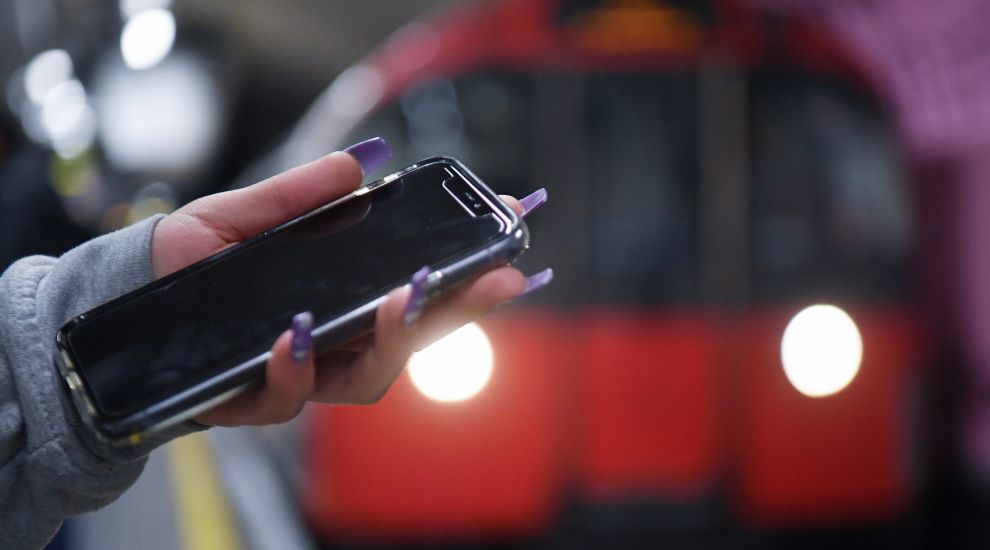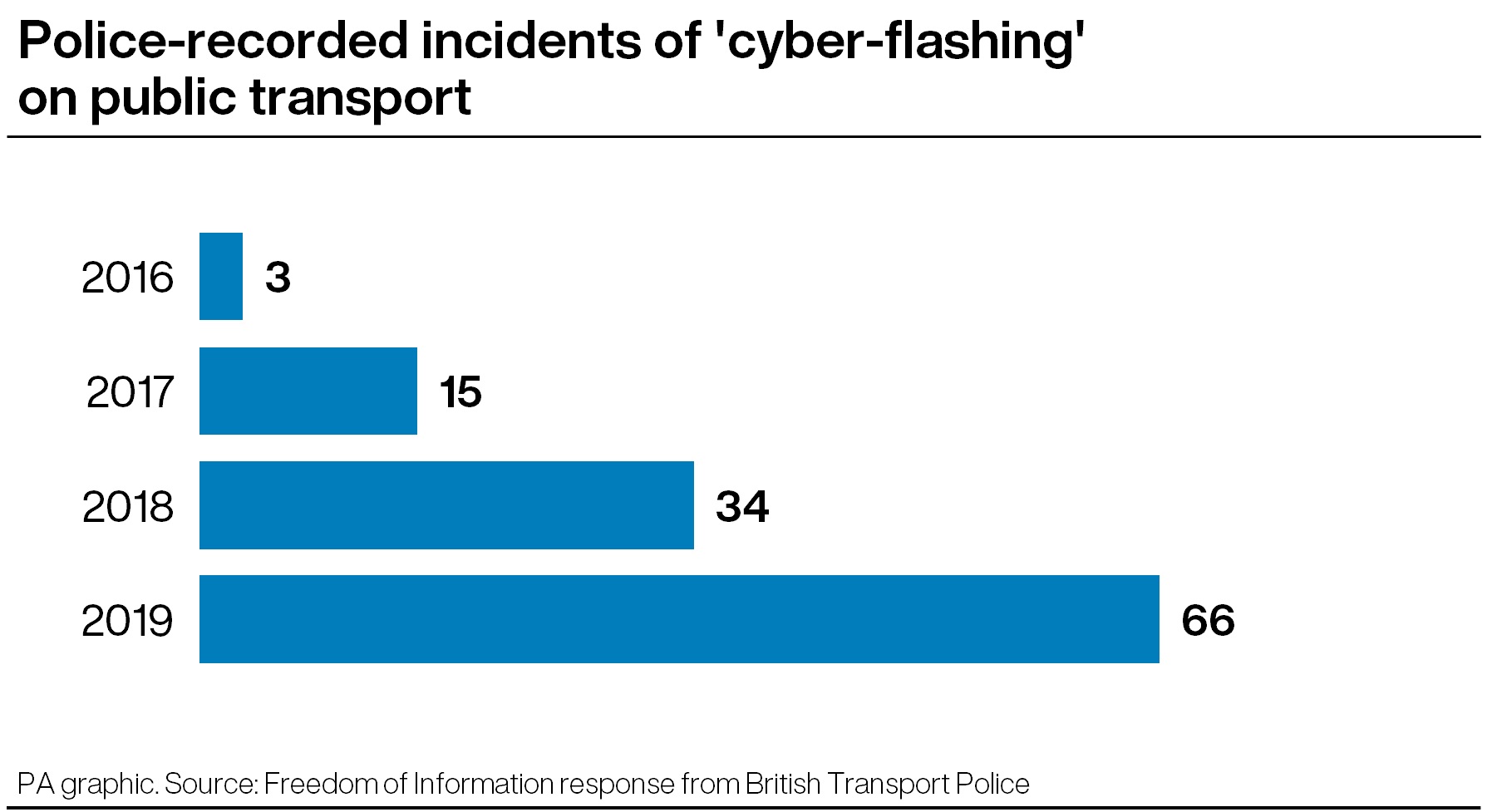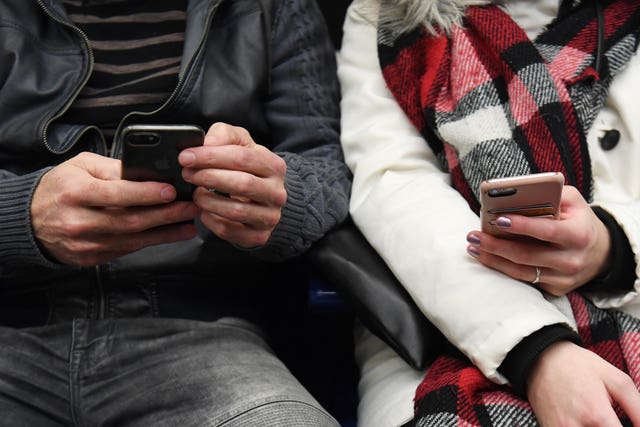
The number of women being sent sexually explicit images by strangers on trains is going “largely unreported” – despite a spike in incidents, new data has revealed.
Reports of cyber-flashing to British Transport Police (BTP) have almost doubled in a year, although campaigners say the number of women affected “will almost certainly be much higher”.
Despite the rise there was only one arrest in 2019, according to data obtained by the PA news agency.
Cyber-flashing is when a person is sent an unsolicited sexual image on their device by a stranger nearby through AirDrop, a file-sharing function on iPhones.
Victims – often targeted on trains due to the technology’s short range – said it caused them to feel fearful on public transport.

First reported to the force in 2015, figures obtained by PA through a Freedom of Information (FoI) request show that incidents more than doubled year-on-year in 2016, 2017 and 2018.
In 2019, there were some 66 reports of cyber-flashing – almost double 34 reports in 2018, and a large jump since 2016, when three incidents were reported.
Although numbers have leapt year-on-year, police believe it is still going under-reported due to victims believing the incident is “not serious enough” to speak to officers.
The data, from England, Scotland and Wales, shows there was only one arrest in connection with cyber-flashing made by BTP last year, which records incidents under their malicious communications act.
The force says the majority of incidents result in the failure to identify a suspect, due to difficulty in tracing the perpetrator.
If a person’s AirDrop settings are set to “Everyone”, it means someone outside of their contacts list can request to send them a file.
This can be done anonymously, as all that is shown on the receiving device is a preview of the picture and the name of the iPhone sending the file.
In 2019, where the victim’s gender was recorded by the force, the majority of those targeted (88%) were women.
More than half (57%) of those whose ages were taken by officers were aged between 21 and 30.
Most of the incidents were recorded in London, but reports were also received at stations in Birmingham, Warwick and Guildford.

Just under half (44%) received an unwanted image on London underground services last year, while 40% of incidents were reported at National Rail stations.
Rebecca Hitchen, campaigns manager at End Violence Against Women Coalition, said the increase shows women are becoming “more confident they will be taken seriously” if they come forward.
But she added: “It can also suggest that this particular behaviour is becoming more common.
“What we do know is that the actual number of women affected by this will almost certainly be much higher than the number of reports, and it will be impacting on their ability to go about their lives feeling safe and free.”
Laws around image-based sexual abuse are being reviewed by the Government as part of a potential overhaul looking to bring cyber-flashing and other digital trends in line with other sexual offences.
The Law Commission will examine existing legislation to ensure it is keeping pace with advancements in technology, but is not due to report back until 2021.
Scotland made causing a person to look at a sexual image without their consent an offence in 2010.
Clare McGlynn, professor in law at Durham University and an expert on image-based sexual abuse, said the rising number of reports shows “women have had enough of this harassment”.
“Now we need action, and I am confident the Law Commission review is taking this seriously, recognising that cyber-flashing can be very frightening and adversely impact on women’s daily lives,” she said.
Detective Inspector Ashley Cooper, from BTP, advised people to review their AirDrop settings to only receive messages from people in their contacts list.
He said: “As with other forms of sexual harassment, we believe that cases of cyber-flashing, which can involve the sending of unwanted, threatening or explicit sexual communications, goes largely unreported – either because victims don’t feel the incident is serious enough to report or simply because they don’t know where to turn.
“If you are a victim of cyber-flashing, our advice would be to report the matter to police as soon as possible.”
A Government spokesman said: “It is illegal to watch sexually offensive material on our railways, and nobody should be made to feel uncomfortable or unsafe on public transport.
“We have asked the Rail Delivery Group to progress a package of measures to tackle unacceptable behaviours like this as quickly as possible.”
Susie Homan, director of planning, engineering and operations for the Rail Delivery Group, said it was working with BTP to further improve safety and “tackle all forms of unwanted sexual behaviour”.